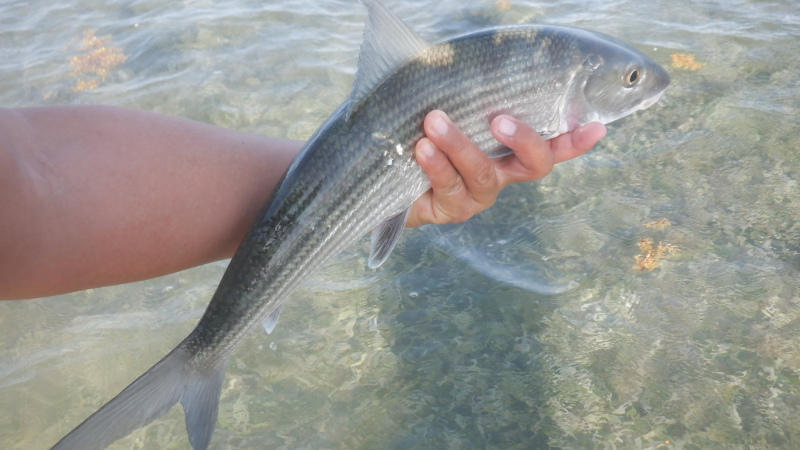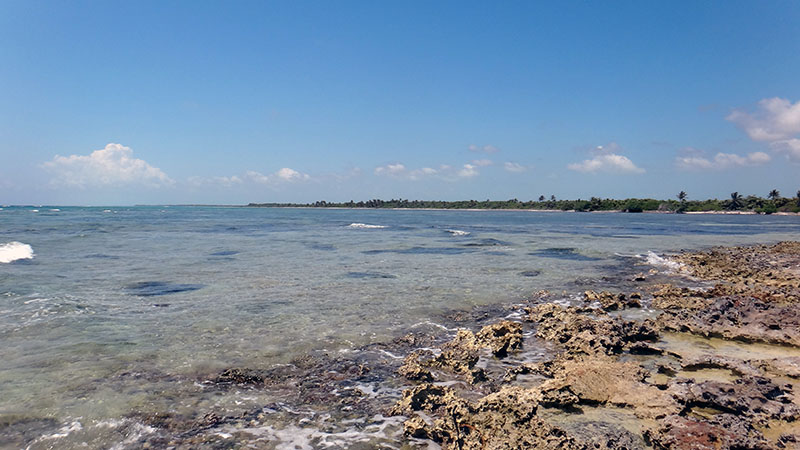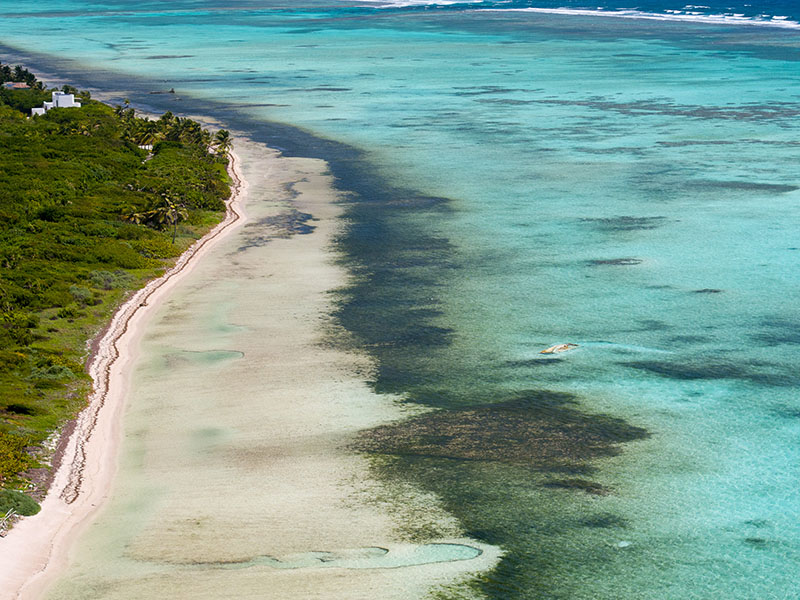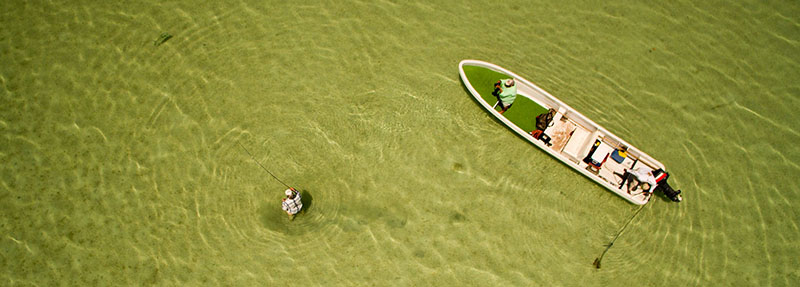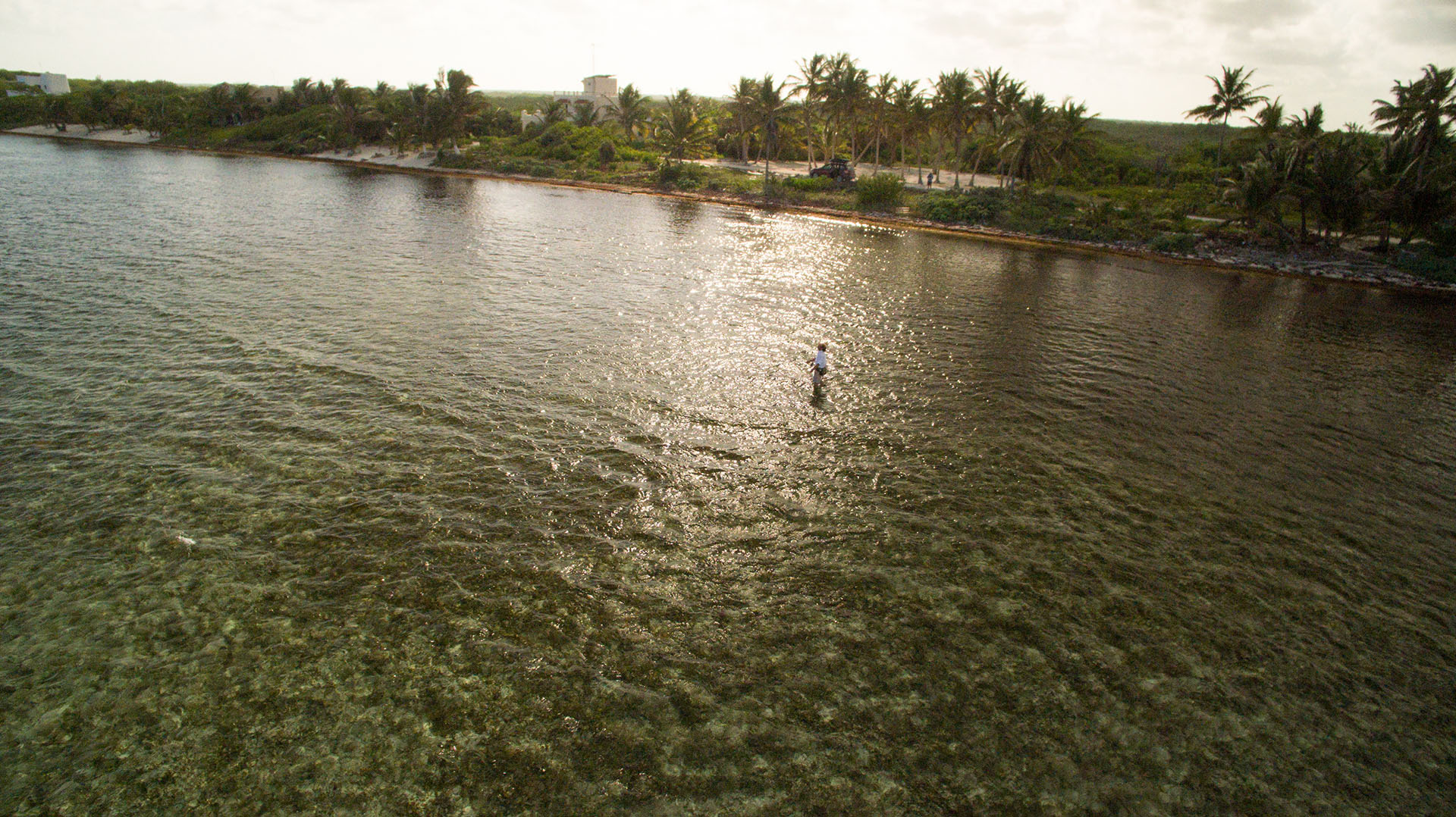
Make the Salt Water Fly Fishing Trip of a Lifetime, Every Year.
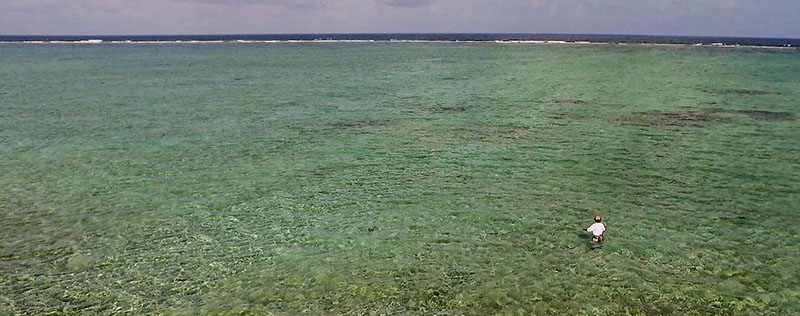
You are sitting in a darkened theater with your friends, waiting for the films to begin. It’s spring and the fly fishing film festivals are coming to town. You already caught a logo’d T-shirt they threw into the crowd, and you are ready to start geeking on some fish porn. The first trailer is following some hard core fly fishermen, battling through the jungle to get to some bonefish flats that haven’t seen a human being in centuries, if ever. Follow with slow motion shots of beautiful casts to tailing fish. Cut to an eat, hook set, screaming reels. You start thinking to yourself, “I gotta do that someday”. But you are thinking, “There is no way I can afford that”. But what if you could get the same heart pounding fishing, a little adventure, an incredible experience, for an affordable price. What if you could do it by saving just $7 a day? What if you could make the “Trip of a lifetime” every year?
To give you a little background, I have been doing this for several years with a group of friends. We pick a destination, and try to figure out how we can do a week-long trip there to do some salt water fly fishing for less than $2,500 USD. What follows are 10 rules that I follow to get there.
First things first, this type of trip is not for everyone. It does take a lot of preparation, organization, your time, a sense of adventure and a little risk tolerance. Many of us prefer to let a lodge or a fly shop host us in an all inclusive lodge. All you need to do is pack your stuff and go. They have done all the research, have all your food, lodging, guides all set up for you. No risks. No sweating the details. You just show up and your hosts will do the rest. This is a great way to travel, you will have a great experience and you will catch fish. For those of us who would prefer to do it “my way”, and are willing to do a bit of work, you can get a salt water fly fishing trip for less.
So how do you do this? Here are 10 rules to follow that will make this a reality for you.
Rule 1. You really want to get an even number of friends. This makes it so you can have two people per room and two people per boat. (The math dictates an even number is most cost efficient.) If you have an odd number, and I have done this before, it’s better if you have more people than fewer. So for example, if you have 3 people, you have to have two boats for 3 people, vs. if you have 5 you have 3 boats. Let’s say each boat is $300 a day, for two boats and 3 people that is $600/3 people or $200/day/person vs. $150/day/person if you had an even number of people. If you have 5, it is $900/5 people or $180/day/person. So you get how that works. So rule number one, even numbers of travelers. This is the same for hotel rooms, if you can do double or quadruple occupancy, it will save you money.

Rule 2. Plan at least 3-4 months out. Usually, I start watching air fares from about 6 months out. Booking your flights out a few months does a couple of things, it makes sure you get a good deal, also Orbitz and a couple of other sites give you a low price guarantee, so you shouldn’t have to pay more, and could possibly pay less. The second thing it does is commit your co-travelers. Once they have bought their tickets they are committed as well. Third, it allows you to book your guides well ahead of time.
Rule 3. Book off or shoulder seasons. Hotels, flights, rental cars are all going to be cheaper between May and November. In the Caribbean, if you are concerned about Hurricanes, you can buy trip insurance for a couple of hundred dollars. This will protect you in case you cancel because there is a hurricane when it comes time for your trip. Although the probability of a hurricane hitting the week you are going to go is pretty low.
Rule 4. Don’t expect the Ritz Carlton for your hotel. If you go this route, this is probably the biggest risk if you have never been to the hotel. You can definitely find clean, attractive, and inexpensive accommodations, but you aren’t likely to get a beach butler or an infinity pool. Doing some research, use tripadvisor.com, or airbnb.com to see reviews, will help you get a better idea of what you are in for.
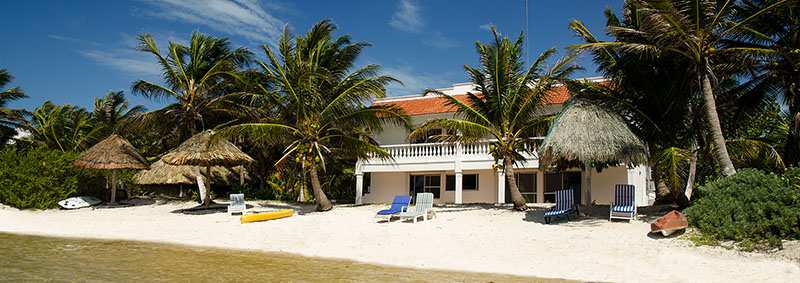
Rule 5. Be a little adventurous with food. You can save money and may be pleasantly surprised. If you get a hotel with a kitchenette, go to the grocery store and get some supplies. In Belize and Mexico, good things to get would be tomatoes, onions, carrots, cilantro, pineapple, etc. to make a pico de gallo. Tortillas, cheese, chorizo, to make breakfast burritos, quesadillas, etc. Also, try out some of the local restaurants, you may find a couple that are really good as well as help the local economy.

Rule 6. Time your trip to quarter moons before or after a full moon. These are the times when you get the most consistent tides and the most consistent fishing. You will be booking out months in advance so you should be able to find a week that falls on these quarter moons.

Rule 7. Schedule a down day. Usually by mid-week, it is good to schedule a day to just hang out on the beach, go snorkeling, or if you are certified, a scuba dive. Hanging out all day on the bow of a boat not only can get you sun burned, but it is surprisingly tiring. Better to give yourself a day to recover before hitting the second half of the trip. Even if you do want to fish every day, you can plan in a day of DIY fishing in the middle as well. That may be the best of both worlds as you get to fish on your “off” day.

Rule 8. So $2,500 is still a lot of money for a trip. But it is very doable if you save consistently. If you think about it though, there are 52 weeks in a year, you only have to save $50 per week, or $7/day to save the money for the trip in a year. That isn’t much more than a Starbucks latte a day. Bring a sack lunch to work instead of going out. You can get creative but just consistently put the money away and you will be surprised how quickly it accumulates. Even if you can’t pull $50/week, try $25/week. That’s $3.50/day. That will get you a Salt Water Fishing “Trip of a lifetime” every other year. Most everyone can do that.
Rule 9. Use local guides. You can save even more money by trying the DIY route. If you are relatively new to salt water fly fishing, you will catch more fish with a guide. It also has the advantage of helping the local economy. Also, in most areas of Mexico and Belize, the guides are relatively inexpensive.

Rule 10. Risks. Here are some of the gotchas you should be aware of.
- Hotels – Do your research on airbnb and tripadvisor. You can usually email the hotel and ask a lot of questions. Ask if they have hot water. It’s not that big of a deal because it is so warm, but it might be a deal breaker for some. Does everyone have a bed? Are you on the beach or in town? Is there a kitchen, restaurants nearby? Is there a bar nearby? How do you get to your guides, do you drive to them of do they pick you up? Are the hotel owners fishermen? Can they help you out if you want to DIY? Do they have kayaks or SUPs you can use?
- Travel companions – This can be a big challenge. As you see from Rule 1, if a friend drops out and gives you an odd number, everyone’s costs go up. Obviously stuff comes up, and it’s impossible to prevent all the time but make sure your companions understand the implications of dropping out. Try making everyone book their flights at once. That puts pressure on people to not drop out.
- Cancel Trips – A lot of hotels in the Caribbean are small and require substantial non-refundable deposits. Airline flights can charge large change fees etc. And because you are booking many months in advance, stuff comes up. Look into trip insurance esp. if you are scheduled to go during hurricane season. The risk is relatively low, but having a hurricane in the area can mess up your fishing trip. Not all trip insurance covers weather related cancellations so look closely at the policy. You may also want a policy that allows for cancellation for any reason.
- Rental Cars/Driving – do you have to drive yourself? Or do they have a shuttle? If driving yourself, check your credit card insurance to make sure that it will adequately cover you in case of an accident. Some cards, like AMEX offer additional supplemental coverage for a small fee. Might be worth checking out. Another tip, schedule your driving during daylight hours. This is less for “bandidos” as it is many people in the Caribbean will walk or ride bikes on the road after dark and they won’t be wearing reflective gear or lights and there are not a lot of street lights either. In Mexico, topes or speed bumps aren’t always well marked and can be particularly hard to see at night. So plan your driving during daylight hours.
Why can you do this by yourself so inexpensively? Well, first off, you are doing most of the work on logistics, coordination, booking flights, doing the research and yes, running some risks. Finding good guides can be challenging, especially if you don’t plan ahead. The good ones get booked up first. Your accommodations may not be ideal, food may be an issue. However, if you spend some time doing some research and plan ahead, you can have a great trip at an affordable price.
Now for those that want to try planning their own salt water trip, you can contact me and I can help you figure it out. I have done this for about 10 years now and have had great trips every time. Also please post questions in the comments section.
Finally, full disclosure, my wife and I now own the Acocote Eco-Inn, a small hotel in Xcalak, Mexico. I can hook you up with great local guides to fish Chetumal Bay for a shot at a flats grand slam of bones, permit and tarpon. A bit of shameless self-promotion: Xcalak is a unique fishery that offers the adventurous not only the opportunity to get a grand slam with a guide in the bay, you can catch permit and bones right off the beach, tarpon and snook in the lagoons, all in a day. Not many places offer a DIY fisherman the opportunity for a grand slam like that. So contact me if you are interested in planning the “Trip of a Lifetime” you can do every year.




